How a Pawn Shop Works
When you step into a pawn shop, you’re entering a world of quick, collateral-based loans. You can bring in an item of value and they’ll offer you a loan of about one-third to one-half its market value. Can’t repay? They keep your item. Besides lending, pawn shops also buy and sell items directly. They thrive by offering below market value and selling high, providing quick cash with less fuss. Remember, understanding how pawn shops appraise value, set loan terms and sell items sharpens your negotiating skills and positions you for the best deal possible. There’s a lot to learn in this intriguing industry!
Key Takeaways
- Pawn shops offer collateral-based loans, secured by valuable items and repaid within 30 to 60 days.
- They appraise items based on their condition and resale value, usually lending 25% to 60% of the item’s resale value.
- Pawn shops generate revenue from the interest rates on loans and by selling unclaimed items.
- If a loan isn’t repaid, the pawn shop can claim ownership of the item, selling it to recover the loan amount.
- Pawn shop transactions involve less paperwork than traditional loans, offering quick cash access without credit checks.
Understanding Pawn Shops
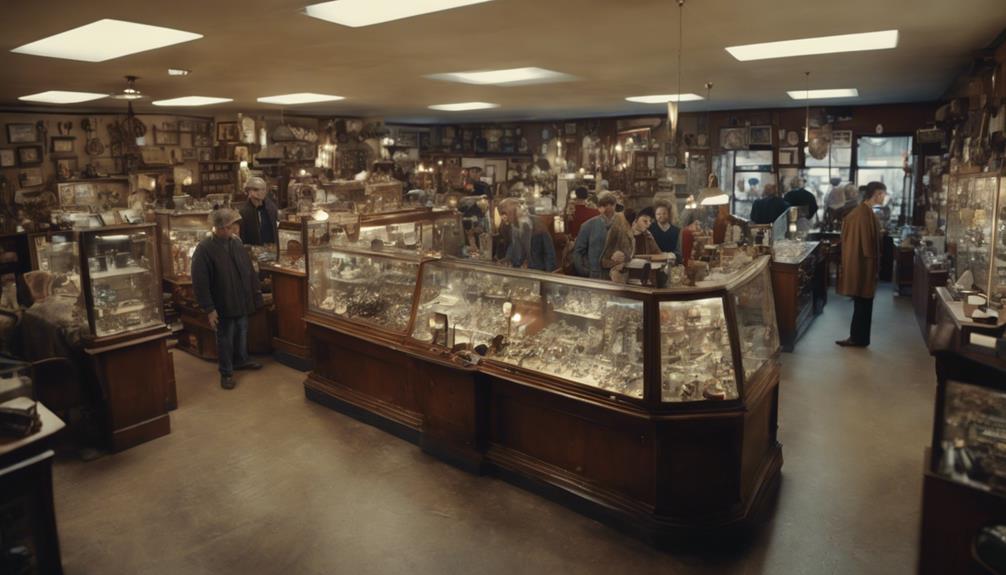
Pawn shops primarily operate by offering collateral-based loans. You can secure these loans using valuable items like jewelry, electronics, or musical instruments. The pawnbroker evaluates the item’s worth and offers a loan amount usually between one-third to one-half of its market value. This method offers a swift way to get cash without requiring a credit check or a co-signer.
On accepting the loan, you receive a pawn ticket, which is more than just a receipt. It details your loan terms, including the repayment amount, due date, and interest rate. This document is crucial for reclaiming your item, so it’s essential to keep it safe.
Interest rates on pawn loans can be high compared to banks, making it a short-term financial solution. Typically, you need to repay the loan, along with the interest, within 30 to 60 days. Failure to do so gives the pawn shop the right to claim ownership of your item and potentially sell it to recover the loaned money.
In simple terms, pawning an item means temporarily transferring its ownership for instant cash. This system has been in place for centuries, serving as a crucial resource for those needing immediate funds. Provided you understand the terms and pay back the loan, you retain ownership of your items.
The Pawn Shop Business Model
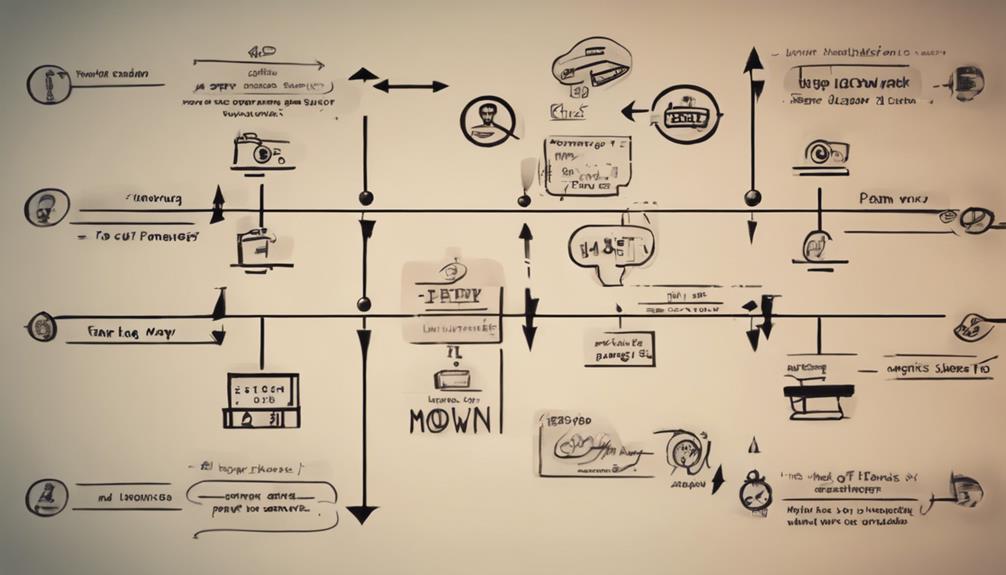
The business model of a pawn shop ingeniously combines aspects of lending and retail. Customers bring items to pawnbrokers, who assess their value. Based on this evaluation, a loan is granted, typically amounting to 25% to 60% of the item’s resale value.
The customer receives a pawn ticket, a receipt for the loan and items. Operating on a collateral-based model, the pawn shop uses the items as insurance. If the loan isn’t repaid within the stipulated period, typically 30 to 60 days, the pawn shop can sell the items to recover the loan amount.
Pawn shops generate a significant portion of their revenue from interest rates, which can be high and vary. It’s critical for customers to understand the terms before accepting the loan.
Here’s a simplified table to illustrate the pawn shop business model:
| Aspect | Description |
| Loans | Issued based on the item’s value |
| Rates | Usually high and vary |
| Value | Determined by the pawnbroker |
| Items | Sold if the loan isn’t repaid |
The pawn shop income is consistently maintained through its dual lending and retail approach. They profit from interest rates when loans are repaid on time, and from selling items when loans aren’t repaid. This model allows pawn shops to prosper in diverse economic conditions.
Process of Selling to Pawn Shops
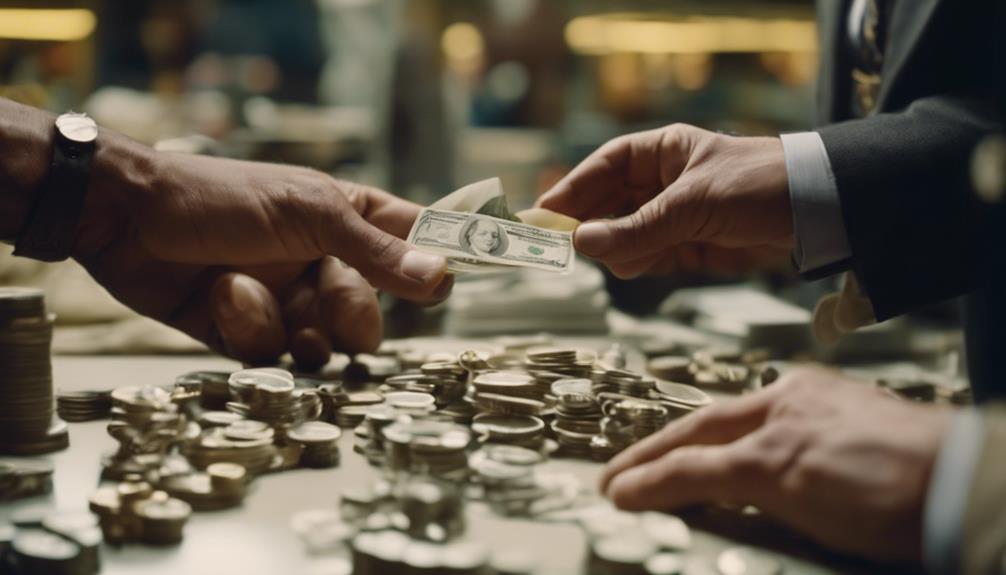
If you plan to sell items at a pawn shop, be aware that the offers you receive may be lower than market value. This is because pawnbrokers take into account potential resale profits. Items like jewelry and electronics are often sold, but pawn shops generally accept a wide range of goods.
The selling process begins with item appraisal. Pawnbrokers evaluate your items based on condition, market demand, and potential resale value. After this appraisal, they’ll propose an offer. This is a business deal, so negotiation is expected. You can try to bargain for a better price, but the final offer will primarily depend on market demand for your item.
One advantage of selling to pawn shops is the ability to get quick cash. The process is faster and requires less paperwork compared to conventional selling methods. You simply bring in your item and leave with cash, making it an efficient method if you’re in urgent need of money.
However, it’s crucial to understand that pawn shops need to make a profit, which they achieve by buying low and selling high. Thus, the amount you receive won’t match the full market value of your item. If your item holds sentimental value or you expect to get the retail price, a pawn shop may not be your best choice.
Process of Buying From Pawn Shops

Understanding the process of buying from pawn shops can provide a cost-effective alternative to retail stores. These shops offer a wide variety of items, from jewelry to electronics and musical instruments, with both new and used options available to suit different preferences and budgets.
Upon entering a pawn shop, you’ll find that items are generally priced below their retail value, making it a more affordable shopping option. However, the listed price isn’t necessarily the final price. In pawn shops, negotiation is common, providing an opportunity to haggle with the pawnbroker for a better deal.
Before you start negotiating, research is key. Knowing the actual value of the item you’re interested in will put you in a strong position during price discussions. Feel free to make a lower offer – the worst outcome is a rejection.
Don’t disregard used items just because they’ve been pre-owned. Often, they’re in excellent condition and can serve you as well as new items, but at a much lower cost.
The Concept of Pawn Shop Loans
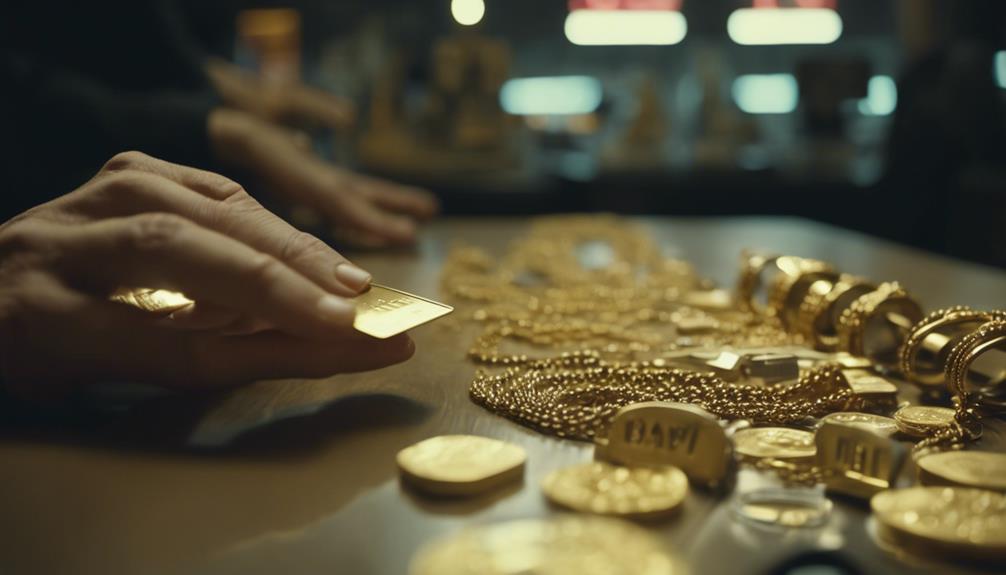
Pawn shop loans are a quick and accessible way to secure immediate funds by offering an item as collateral. This process, which forms the basis of pawn shop loans, bypasses credit checks and offers instant financial relief.
The value of your item, be it jewelry, electronics, or power tools, is assessed by the pawn shop based on its resale value. The loan you receive is usually about one-third of this value, making it a handy option if you’re in a financial crunch.
After the item’s value is appraised, the pawn shop offers you the cash promptly, along with a pawn ticket detailing the loan terms. These include the repayment period, typically 30 to 60 days, the borrowed amount, and the interest rate.
In case you fail to return the loan within the stipulated period, the pawn shop has the right to claim your collateral and sell it to recover the loan amount. This makes it risk-free for the pawn shops, while providing an effective short-term loan solution for those in need of quick cash. Keep in mind, however, that the pawn shop’s primary aim is to offer loans, not to acquire your items.
Identifying Valuable Items for Pawning
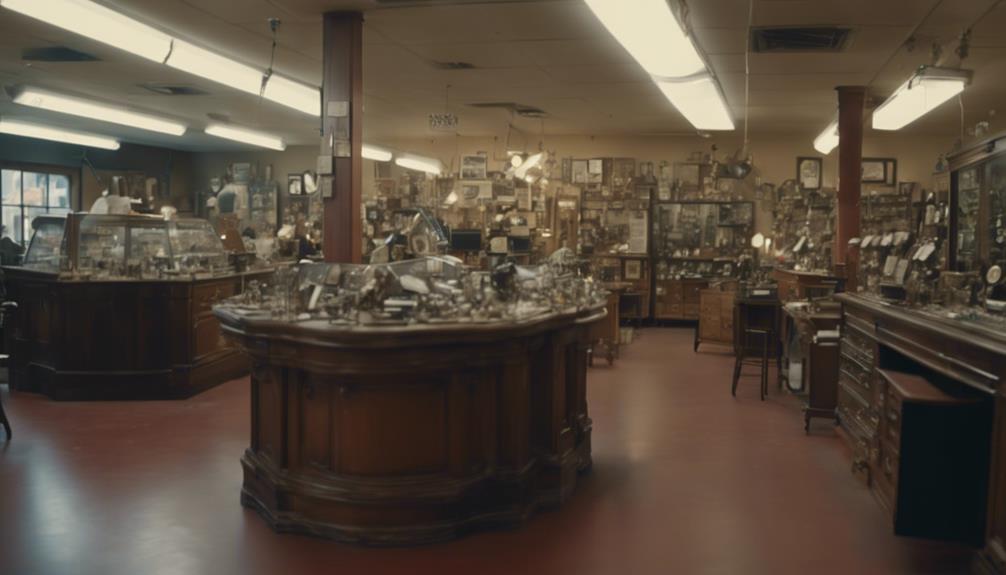
Recognizing valuable items for pawning can significantly enhance your potential for obtaining a good loan amount. It’s crucial to know which items are highly valued in pawn shops, as not all items are considered equal in this context.
Luxury watches often top the list of valuable items for pawning, with brands like Rolex maintaining considerable resale value. Therefore, if you own a Rolex that’s just sitting around, it could be beneficial to consider pawning it. However, watches aren’t the only valuable items.
Musical instruments in good condition are another category that pawn shops find attractive due to their resale value. Instruments range from guitars to violins and could be ideal for a pawn transaction.
Consider pawning your well-maintained smartphone, laptop, or gaming console, as electronics are popular in pawn shops.
Designer handbags are more than just fashion accessories; they can fetch a good loan amount.
Valuable collectibles like coins or antiques can also be pawned for quick cash.
Interest Rates and Fees in Pawn Shops
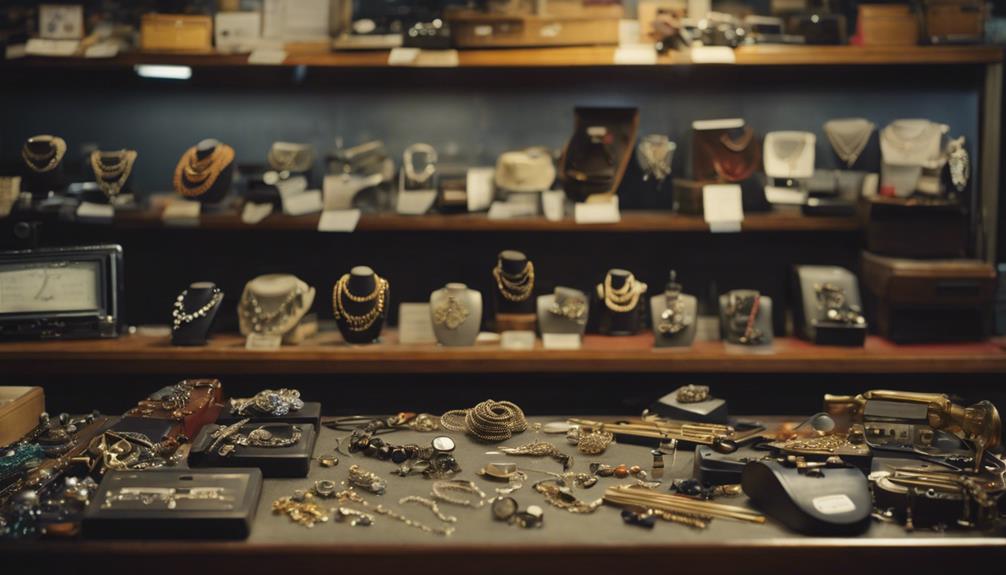
Before pawning your valuable items, it’s crucial to understand the interest rates and fees involved in pawn shop loans. Unlike other financial entities, pawn shops can set their rates within state regulations. For example, in North Carolina, pawn shops can levy an interest rate of up to 2% per month or 24% annually.
It’s paramount to note that the costs aren’t limited to interest alone. Additional charges such as handling, appraisal, storage, and insurance fees may apply, increasing the total amount owed. Understanding these costs beforehand can help prevent unexpected expenses later.
The loan duration usually ranges from 30 to 60 days, affecting the total repayment amount. Both the interest and fees should be considered when calculating the total repayment. For instance, a higher interest rate over a longer loan period will necessitate a larger repayment.
In case of failure to repay the loan within the agreed period, the pawn shop has the right to claim ownership and potentially sell your item. Therefore, ensure you can meet the repayment terms before pawning.
Despite often having higher interest rates than traditional lenders, pawn shops provide transparent and legally compliant rates in regulated states such as California. This transparency allows you to fully comprehend the costs involved before pawning an item.
Evaluating the Necessity of Pawn Shop Loans
When considering a pawn shop loan, it’s imperative to balance the advantages and potential drawbacks. Pawn shops provide a convenient option for quick financial aid as they don’t necessitate a credit check and offer immediate cash based on the collateral’s value.
Nonetheless, it’s crucial to determine if it’s the best choice for you. These loans have their own risks, which include possibly high-interest rates and the danger of forfeiting your valuable item if you fail to repay the loan with interest. It’s essential to ensure timely repayment of the loan.
Here are some critical aspects to consider:
- Immediate cash requirement: A pawn shop could be a feasible alternative if you need cash urgently and can’t secure a loan elsewhere.
- Collateral item’s significance: Evaluate the risk if the pledged item has sentimental value or is of considerable worth.
- Repayment capability: If you have an unstable income and question your ability to repay the loan and interest, this option may not be ideal.
This text ensures semantic accuracy, completeness, consistency, conciseness, relevance, interoperability, and trustworthiness.
Exploring Pawn Shop Loan Alternatives
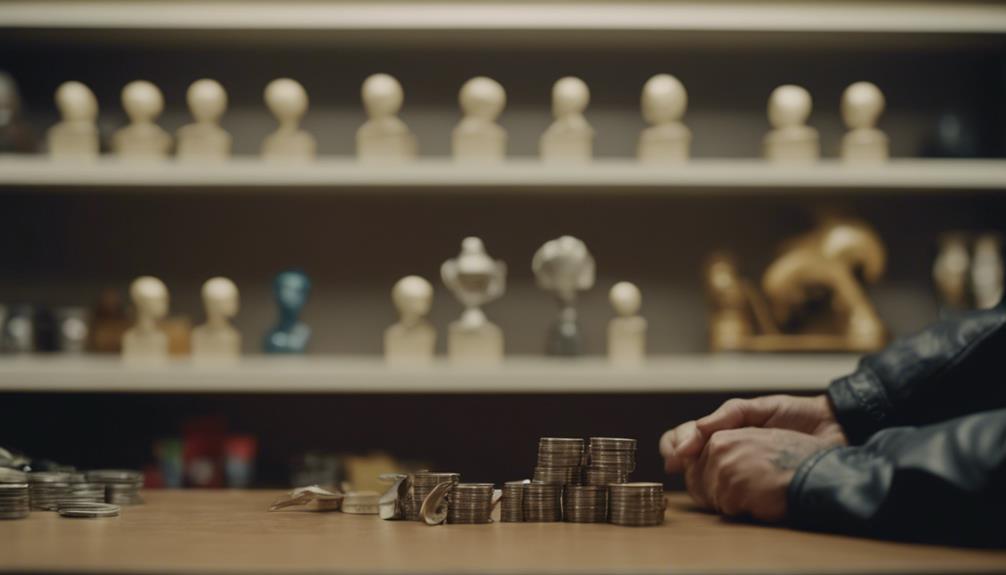
Before rushing to pawn your possessions, consider other loan alternatives for financial relief that don’t risk losing personal assets. Credit unions, member-owned financial cooperatives, often offer favorable loan terms compared to traditional banks, including small-dollar loans that could help in tight situations.
Personal loans are another viable option, which unlike pawn shop loans, aren’t secured against personal belongings. They usually have lower interest rates and a longer repayment period. Payday alternative loans, short-term loans offered by some federal credit unions, are another safer alternative to high-cost payday loans.
Financial literacy is vital in navigating these options. Comprehending loan terms, interest rates, and repayment schedules will facilitate informed decisions. If struggling, consider contacting a non-profit credit counseling agency for free or low-cost advice.
For immediate financial crises, consider establishing an emergency fund to provide a financial safety net and lessen dependence on loans. While pawn shop loans offer quick cash, they carry high interest rates and the risk of losing collateral. Exploring alternatives can lead to a solution that better fits your financial circumstances.
The Role of Credit Counselors
Credit counselors play a crucial role in navigating the complex world of financial decision-making. They offer guidance through financial education, budgeting support, and individualized debt management strategies. If you’re unable to repay a loan, the threat of a damaged credit score can be daunting. This is when a credit counselor becomes a key asset.
These professionals, often associated with nonprofit credit counseling agencies, aid you in comprehending your financial situation in depth. Their services are extensive, aiming to provide you with financial security. They can assist in interpreting your credit report, negotiating with your creditors, and devising a customized financial plan.
Here’s an overview of the areas where they can offer support: * Understanding your annual percentage rate (APR): They’ll elucidate how your APR influences the overall amount you owe and suggest ways to reduce it. * Boosting your credit score: They’ll provide techniques to enhance your credit score, thereby improving your chances of obtaining loans with lower interest rates in the future. * Negotiating with your creditors: They can negotiate on your behalf to secure lower interest rates, waivers for late fees, or extended payment plans.
Credit counselors aren’t just for one-off consultations. They’re there to help you establish a robust financial future. As a regular client, you’ll benefit from continuous support, education, and strategies to maintain financial stability. By working with a credit counselor, you aren’t only managing your present debt but also investing in a financially secure future.
How to Prepare Items for Pawning
To get the highest possible loan amount or selling price at a pawn shop, it’s essential to correctly prepare your items before pawning. It’s important to remember that clean and repaired items are more likely to fetch better offers. Nobody wishes to pawn items that are dusty, dirty, or defective. Thus, invest time in cleaning your goods, removing dust from electronics, or repairing minor faults. This simple effort can significantly increase your item’s value and your potential loan or selling price.
Furthermore, it’s important to know the market value of your item. Being aware of what you’re pawning allows you to negotiate effectively. Pawnbrokers are negotiation experts and not knowing your item’s worth can put you at a disadvantage.
Pros and Cons of Pawn Shop Businesses
Pawn shop businesses offer several advantages, including quick cash access without credit checks, but they also come with potential drawbacks that should be considered.
Pawn shops offer a more secure option compared to other short-term lenders like payday loans, thanks to regulated interest rates. They provide a convenient method to obtain a loan without the lengthy approval process seen with traditional lenders. Moreover, pawn shops emphasize building customer relationships, as evidenced by their impressive loan repayment rate of over 90%, according to the National Pawnbrokers Association.
Nevertheless, some disadvantages include:
- The loan amount given is typically between 25% to 60% of the item’s resale value, which may be considerably less than its actual worth.
- If the loan isn’t repaid within the agreed time, the pawned item will be sold to recoup the debt.
- Despite being regulated, interest rates can still be quite high.
The decision to use a pawn shop for pawning or selling items should be informed by your personal needs and circumstances. These businesses can be a quick source of cash, but understanding the terms and potential disadvantages is crucial. After all, the goal of a pawn shop is to ensure satisfaction for both the business and the customer.
Popular Items to Sell at Pawn Shops
If you’re contemplating a fast cash solution, you might be curious about the most sought-after items at pawn shops. Topping the chart is jewelry, including gold chains and diamond rings. Such precious metals and gemstones usually yield approximately half their retail value. It’s important to note that the intrinsic value matters, hence even broken gold jewelry can be sold for cash.
Electronics are another high-demand category. Latest versions of smartphones, laptops, and tablets are especially desirable. Pawn shops generally offer a good percentage of the retail value for these items, but remember, their condition and demand significantly determine the price.
Pawn shops also frequently trade in tools. Both power tools and hand tools, provided they’re in optimal working condition, can earn you a reasonable sum. Brands such as DeWalt, Makita, and Milwaukee are favored and usually fetch higher prices.
Musical instruments shouldn’t be overlooked. Instruments like guitars, drums, and even pianos, particularly those from renowned brands, are commonly traded for cash at pawn shops. The better the condition, the higher the cash you receive.
Lastly, collectibles are worth considering. Items like rare coins, vintage stamps, and unique antiques can have substantial value. Nevertheless, the worth of collectibles can greatly vary, hence it’s advisable to do some research before visiting the pawn shop.
Comparing Pawn Shop Loans and Instacash Advances
When examining quick cash solutions, it’s beneficial to compare pawn shop loans and Instacash advances, each possessing distinct benefits and limitations. Pawn shop loans, recommended by the Pawnbrokers Association, provide a unique financial avenue with specific factors to consider.
Pawn shop loans depend on the value of the pawned item. The loan amount is usually a portion of the item’s resale value. While interest rates can fluctuate, they’re often more affordable than other immediate cash options. The repayment period is generally between 30 to 60 days. However, the main downside is the potential loss of your item if you fail to repay the loan.
On the contrary, Instacash advances are short-term loans based on your anticipated income, offering swift access to cash without needing collateral. However, the loan amount is usually smaller and interest rates can be higher. The repayment period is typically until your next payday, which could be financially challenging if you’re already in a tight spot.
Consider these factors when choosing between the two:
- Collateral availability: Are you prepared to lose something valuable if you can’t repay the loan?
- Repayment terms: Can you meet the repayment deadline?
- Interest rates: Are the interest rates manageable for you?
Understanding the details of both pawn shop loans and Instacash advances can guide you towards a decision that best fits your financial situation.
Breaking the Debt Cycle With Pawnshops

Pawnshops can be instrumental in breaking the debt cycle, serving as a confidential source for immediate financial needs, without the need for credit checks. Instead of opting for high-interest payday loans, pawnshops allow you to leverage the value of your personal possessions for quick cash.
They provide a crucial safety net in times of financial emergencies. Pawnshops evaluate your items’ worth and offer a loan reflecting a portion of that value, tackling short-term financial needs without the risk of falling into long-term debt.
The advantage of pawnshops is the opportunity to repossess your pawned items after repaying the loan and interest. This system not only addresses immediate financial needs but also allows you to retain your possessions, presenting a preferred strategy for many to manage financial strains without selling personal items outright.
However, failure to repay the loan within the stipulated time results in the pawnshop selling your items to recover their funds. Hence, while pawnshops can effectively help break the debt cycle, they aren’t a cure-all solution. They should be considered as part of a larger financial management strategy.
Frequently Asked Questions
Is It Better to Pawn or Sell to a Pawn Shop?
Whether it’s better to pawn or sell to a pawn shop depends on your needs. If you need quick cash and don’t want the item back, sell it. If you’d like to retrieve your item later, pawn it. Remember, pawning means you’ll have to repay the loan with interest. Consider the item’s value and your financial situation before making a decision.
It’s all about what works best for you.
How Does a Pawn Shop Make Money?
Pawn shops profit through various channels. They earn money from interest and fees on pawn loans. If a customer fails to repay, the shop sells the collateral item. Additionally, they make profit by selling items brought in by customers. Some pawn shops offer extra services like money transfers or sell new items, bringing in additional revenue. Profit margins can fluctuate based on factors such as the value of pawned items, interest rates, and resale prices.
What Do Pawn Shops Pay Most For?
You’re probably curious about what items fetch the highest price at pawn shops. Typically, pawn shops pay most for items like gold and diamond jewelry.
High-end watches, particularly from brands like Rolex and Cartier, can also bring in a pretty penny. Rare gold or silver coins, luxury designer handbags, and high-quality musical instruments, especially vintage ones, are also highly sought after.
What Are the Rules of a Pawn Shop?
Pawn shops have a set of rules you’ve got to follow. They’re regulated by federal laws like the Patriot Act and the Equal Credit Opportunity Act. They must keep records, verify ages, and ticket pawned items. They’re even required to report merchandise daily to law enforcement to prevent dealing with stolen goods.
Failure to repay your loan means they’ll sell your item. It’s a legal, regulated way to get a loan.
Conclusion
Exploring the pawn shop world can be like a high-stakes chess game. You’re constantly strategizing, balancing risk and reward.
Recent data suggests about 85% of pawned items are reclaimed. But remember, it’s essential to understand the rules before you play the game.
Whether selling, buying, or taking a loan, arm yourself with knowledge. This can transform your pawn shop experience from a gamble into a calculated move towards financial success.

